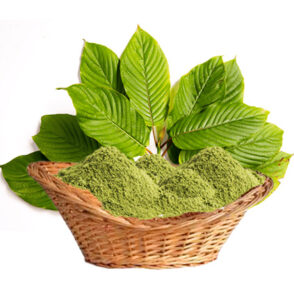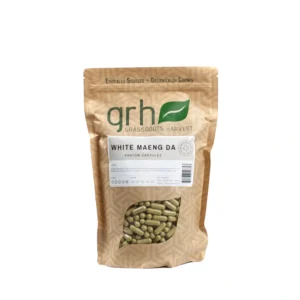Are you getting suggestions for adding Sakae Naa or Kratom to your daily diet to enhance your health? Are you confused between the concept of both and their effects and want to know which one you should use for your health? If are you tired of asking this question to the Sakae Naa and Kratom retailers but can’t find a satisfactory answer? Or you might be considering Sakae Naa as an alternative to Kratom because of its controversial account.
If yes, then this comprehensive guide about comparing Sakae Naa and Kratom is certainly for you. In this article, we will be talking thoroughly about the basic concept of Sakae Naa and Kratom, their similarities, differences, and toxicity levels, along with other details.
So, make sure that you stick to this article till the last and give it a detailed read.
There was a time when Kratom leaves were used to make teas in their native countries on special occasions. But, now, for more than half of the century, the concern about using Kratom for treating different health diseases has been spreading quickly. People worldwide have begun using Kratom in their daily diet.
However, many countries still have banned the use of Kratom due to a lack of research and its controversial profile. And the people belonging to such countries started to look for an alternative to Kratom. And this is exactly where Sakae Naa jumps in and brings revolutionary changes to the lives of its users.
Having similar health effects, the biggest reason for Sakae Naa gaining such massive popularity worldwide is its availability. If you want to start using Sakae Naa for an energy boost or mood enhancement, you can easily find its retailer in your city or on thousands of online forums.
Comparatively, finding authentic, reliable, and pocket-friendly Kratom is quite challenging. For example, the red Jambu Kratom, the world-famous strain of Malay Kratom, is rarer than the finding Albino humpback whale in the ocean.
But, before jumping on to the differences every beginner in the Kratom or Sakae Naa user should know, let’s look at some of the similarities than make the Sakae Naa a popular alternative to Kratom.
Apart from geographical, botanical, and size differences, Sakae Naa and Kratom leaves have many similarities that serve as one of the major reasons they are alternatives to each other. Let’s have a look at some of them:
[product-block]
We are all aware of Kratom’s basic effect, the “Caffeine Effect,” similar to opioids. Surprisingly, the Sakae Naa is also meant to give the effect of calmness and relaxation as its base effect.
But, when we talk about the differences between Sakae Naa and Kratom, the tables are completely turned. From the area of origination to the physical appearances of the leaves, there are many major differences that the beginner user of either Sakae Naa or Kratom should certainly know.
So, we will be discussing some of the main differences between these two herbs.
The area of origination, countries, and other geographical factors greatly affect the effects, potency, and long-lastingness of the herbs, either Kratom or Sakae Naa.
Although both Kratom and Sakae Naa belong to Southeast Asian countries, their originating areas are quite different.
Taking the Kratom first, it has a wide variety of strains coming from the dense and never-ending jungles of different countries, like the Jambu jungles of Malaysia, the Borneo island of Indonesia, and Thailand mostly.
In the case of Sakae Naa, indicating back to the Sakai tribe of Malaysia, it can be found in Thailand, Myanmar, Laos, Vietnam, Cambodia, and surrounding countries. (1)
The Kratom leaves belong to the Mitragyna Speciosa plant, a member of the Rubiaceae family, also referred to as the coffee family. These trees are usually found in their originating countries’ evergreen, dense and never-ending jungles. It was considered a special tea for special occasions and as a medicine to treat small-scale diseases like fever, diarrhea, and cough in early times.
Comparatively, Sakae Naa belongs to the Combretum Quadrangulare plant, belonging to the Combretaceae family, commonly known as the Mangrove family. Unlike the Kratom plants, the plants of Sakae Naa are usually grown near the river banks and other wet places. Initially, Sakae Naa was considered a cure for intestinal worms and bacterial infections.
The trees of Kratom can grow higher than the plants of Sakae Naa, measuring between 20m to 30m, whereas Sakae Naa plants can grow a maximum of 10m.
The coffee family of Kratom has around 124 species in the coffee family, while the Sakae Na family has 50 species in its family.
The leaves of Kratom are dark-green and smooth in texture, ranging from around 15cm to 20cm in length and 7cm in width. They are mostly oval in shape and grow in opposite patterns.
The leaves of the Sakae Na plant, which belongs to the Mangrove family, have light-green leaves in color, ranging up to 15cm in length, smooth-edged and oval. The Mangroves have thick leaves and smooth leathery surfaces than the Kratom leaves.

Kratom has a wide variety of stains, depending on the area of origination and the color of the leaves. Kratom is usually named after they’re belonging to countries like Super Indo Borneo Kratom from Indonesia, Malay Kratom from Malaysia, and Jambu Kratom from Jambu jungles.
Similarly, they are divided based on their leaves’ veins’ colors. The red-veined Kratom is considered the heaviest and most potent Kratom, and the white-veined Kratom is the lightest, green-veined Kratom is the partially potent and mature one.
In the case of Sakae Naa, it doesn’t have any strains or a veined-colored division system. Although it has different varieties, they are not as wide as Kratom strains and types.
The most popular form of using both herbs in daily diet is the powder with toss and drink method. And the manufacturing process of making this powder from the leaves is the same; the difference is in the other forms the users would like to have.
The leaves of both plants are picked carefully and dried in the sunlight, making sure that they are not secured from foreign particles and damage-causing agents. Then these leaves are transported to the industrial plants, where they are crushed to the form of powder.
No, this is where the dissimilarities arise. Kratom is available in many other forms, such as tinctures, extracts, capsules, tablets, gums, and shots. Just the making process changes a bit after drying the leaves.
But in the case of Sakae Naa, the powder is the only available form in the markets. Finding any other form of Sakae Naa products might be a personalized order or an unauthentic product.
When it comes to the chemistry of these two herbs, they share big differences between them. The Kratom, also called Mitragyna Speciosa, is famous for its unique alkaloid profile. Having more than 40 kinds of alkaloids, Kratoms are mostly rich in Mitragynine and 7-hydroxy mitragynine alkaloids, depending upon the belonging countries and vein colors of the leaves.
At the same time, the chemical composition of Sakae Naa is totally different from Kratom. TheThe leaves of the Combretum Quadrangulare plant provide flavonoids and triterpenoids to its users. They are mostly rich in Combretol, a yellow pigment responsible for the light color of the leaves. (6)
Uncommonly, the effects of using both Kratom and Sakae Naa products are the same. However, depending upon the dosage, strains of Kratom or types of Sakae Naa herb can cause differences.
Kratom doesn’t have a positive image all over the globe. Many countries or even continents have banned the supply of Kratom because of its controversial and unclear image and lack of research.
Even surprisingly, its originating countries like Thailand and Indonesia have banned its use among their people.
And this is exactly why Sakae Naa is gaining popularity among people all around the globe very quickly. They are all finding a legal and pocket-friendly alternative to Kratom to use regularly in their diet.
Sakae Naa, as compared with the Kratoms’ strains, is legal and easily available to the market and online stores. As it doesn’t have any legal irregularities attached to it, it is one of the best alternatives to Kratom as it provides similar effects to its users.
Sakae Naa and Kratom are two of the most famous names in the world of herbs. Using them as a medicine to cure diseases and disorders has been a practice for centuries, but research has now boosted their popularity to a greater extent.
But the main problem with not choosing Sakae Naa over Kratom strains is its less potent effects. Although the effects on health are similar, Kratom is more potent, heavy, and long-lasting than Sakae Naa. But if you are a resident of a Kratom-banned country, then Sakae Naa can really help you.
[post-button]



Copyright © 2024 – All Rights Reserved – Terms & Conditions – Privacy Policy
Please note that the material presented on this site is intended solely for informational purposes and should not be relied upon as the sole basis for decision-making. It is advisable to consult multiple sources before making any decisions. These products are not intended to prevent, treat, cure, or diagnose any disease. We do not assert any legal claims or offer legal advice. While we strive to provide accurate and up-to-date information, the complexities of legal matters regarding Kratom may vary. The legal age to buy kratom varies by state, please ensure you meet the legal age requirements before making a purchase. Using Kratom daily is not advisable. To prevent the development of tolerance and dependency, use it responsibly and integrate regular breaks into your consumption. Individuals with underlying health conditions, pregnant or nursing women, and those currently taking medications should seek guidance from qualified healthcare professionals before incorporating Kratom into their routine. Please be aware that the U.S. Food and Drug Administration (FDA) has not lawfully marketed Kratom as a dietary supplement, and that we do not ship to states and cities where Kratom is prohibited by law.